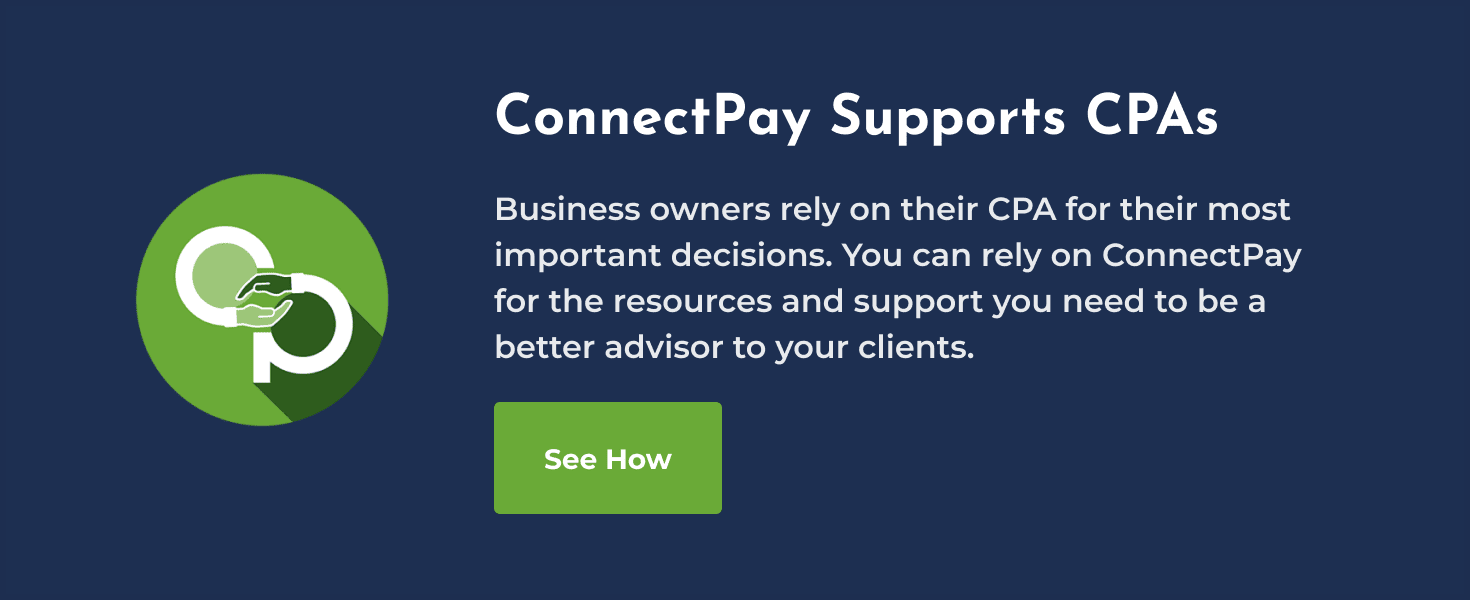How CPAs Can Help Clients Avoid Common Payroll Accounting Challenges

Sometimes businesses make mistakes that lead to brilliant new discoveries or attract new clients. Payroll accounting mistakes aren’t that kind of mistake. Making mistakes with payroll accounting creates nothing but aggravation and financial loss for clients, and frustrated calls to their CPAs asking, “Why didn’t we know this was going to be a problem?”
Small businesses are inherently prone to a lot of common payroll accounting challenges for a few reasons. For one, they generally lack an in-house payroll specialist who can navigate complex payroll issues. Small business owners wear so many hats and have so many things to juggle that payroll errors can slip past them. CPAs can help clients avoid scary IRS notices and angry employees in a few key ways.
Be Proactive About Multi-State Issues
Many businesses never had to deal with nexus issues before the pandemic forced the shift to remote work. Now that it’s logistically easy for employees to live in one state and work for a business located in another state, CPAs can expect clients’ questions about nexus to increase.
Nexus affects payroll accounting whenever an employee lives in one state and works for a business located in a different state, and/or when an employee travels to multiple states for work. If the business has nexus in any state where an employee lives, it may be required to withhold income taxes on the employee for both states. An exception is made if the states share a reciprocal agreement, in which case income taxes only need to be withheld for the employee’s state of residence. When there’s no reciprocity, states may use tax credits that ultimately help workers avoid double taxation, but the business still needs to withhold taxes for both states.
What’s complicated about nexus for payroll accounting is that every place has its own definition of what constitutes nexus. Most states consider a business to have nexus if even one employee telecommutes from the state. But not all states use that standard, and some states created temporary nexus rules during the pandemic that have since ended.
Some of the common nexus questions that clients may ask their CPAs right now are: Does our remote worker give us nexus in [X state]? If so, what do we have to do for tax withholding purposes? What else do we need to know about paying employees in different states?
Accountants should also be proactive about checking in with clients who have remote employees or employees who commute across state lines. Make sure they know to bring their nexus questions to you and/or their payroll specialists for specific guidance that affects payroll.
Verify Employees are Classified Correctly
Misclassifying workers is a common and expensive payroll accounting error. It often happens in small businesses when employers mistakenly believe they have the discretion to decide whether to treat a worker as an independent contractor or a W2 employee. Misclassified employees who are paid via 1099s have to pay all their own FICA taxes and miss out on workers’ comp coverage, unemployment insurance, overtime pay and other protections and benefits that only W2 employees are entitled to. When employees or the IRS realizes the error, businesses are liable for penalties and back taxes that can be financially devastating for a small business.
CPAs can advise clients when they’re hiring new workers and routinely evaluate clients’ current payroll to ensure everyone is being correctly classified and paid. CPAs can also talk clients through the three factors the IRS uses to determine whether a worker is an employee or an independent contractor.
- Behavioral control: If an employer controls how, when and where a worker does their job, the worker is probably an employee.
- Financial control: If a worker’s equipment and expenses are covered by their employer, and the worker is paid a consistent wage, they’re probably an employee.
- Business relationship: If a worker is eligible for employer-sponsored benefits like insurance and paid vacation, and is expected to work on an ongoing basis until they quit or are laid off or terminated, they’re probably an employee.
Classification questions can get complicated, especially for businesses that employ salespeople. A worker’s classification may also change when their duties and/or roles change. CPAs need to stress to their clients the importance of seeking their guidance when there’s any uncertainty about worker classification.
Tell Them Not To Become Tax Experts
IRS compliance is one of the biggest responsibilities and biggest challenges around payroll accounting. Clients shouldn’t be wasting valuable time trying to make sense of new IRS guidelines or figuring out if they’re correctly withholding taxes for a new employee when they have a business to run. And they definitely can’t afford the financial consequences that can happen if they take guesses when setting up payroll accounting and the IRS objects.
How CPAs Can Help Clients Avoid Payroll Accounting Challenges
CPAs can save clients time, aggravation, and a lot of money by stressing the value of outsourcing. Remind them that you’re ready and able to answer their tax and payroll questions any time, no matter how small. And that if you don’t have the answer to a particularly difficult payroll question, you know where to turn for an accurate answer.
CPAs are just as busy as their clients are. When you’re stumped by a client’s payroll accounting problem or need clarity around some aspect of payroll tax compliance, ask the people whose job it is to know everything about payroll and HR regulations. With ConnectPay, getting answers is as simple as making one call to your Connected Services Representative. Let’s connect to talk about what a partnership with ConnectPay would look like.







